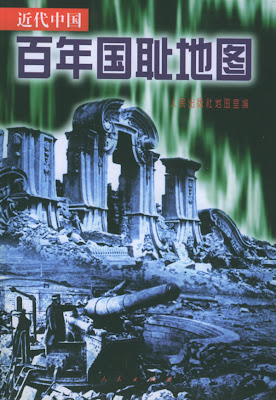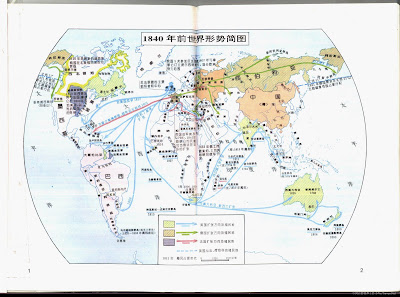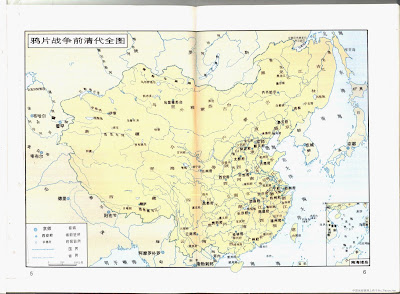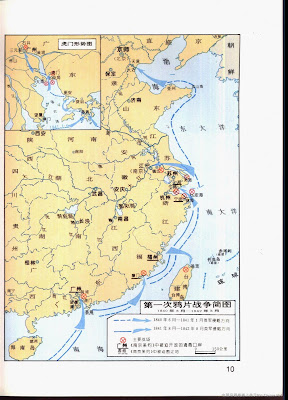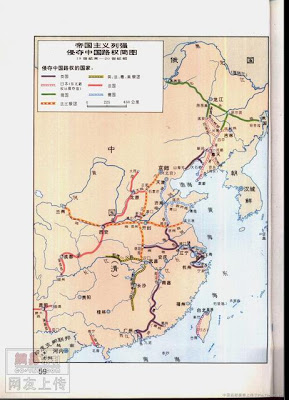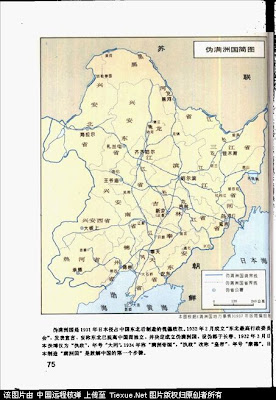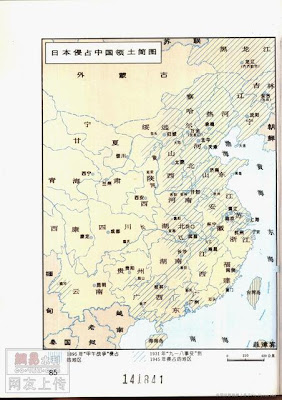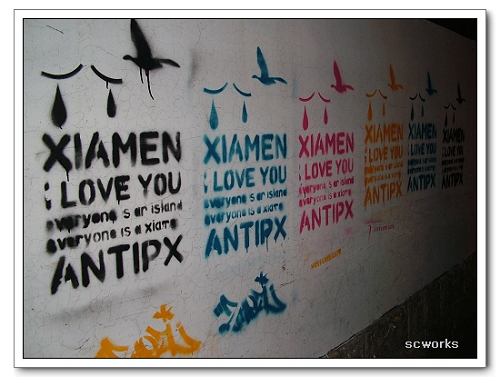From the China Law and Politics Blog, run by Carl Minzner of the Council on Foreign Relations, a job ad:
Position: Program Officer for Asia, IRI
The International Republican Institute (IRI) seeks a Program Officer for their Asia regional programs, to be based in Washington, DC.
A nonprofit, nonpartisan organization, the International Republican Institute (IRI) advances freedom and democracy worldwide by developing political parties, civic institutions, open elections, good governance and the rule of law.
I have always found it odd when the IRI is described as an NGO or nonpartisan organization. The IRI receives its funding from the National Endowment for Democracy. The NED, started in 1983 by the Reagan Administration to promote democracy abroad, receives virtually all its funding from the US government. The “NED’s unique multisectoral approach is characterized by its four core institutes: the National Democratic Institute for International Affairs, the International Republican Institute, the American Center for International Labor Solidarity, and the Center for International Private Enterprise, which represent the two major American political parties, the labor movement, and the business community, respectively.” In other words, the Democrats, Republicans, AFL-CIO and U.S. Chamber of Commerce.
Reading the NED’s very own history page is enlightening. The House opposed directly funding two political party institutes, but in hammering out a compromise with the Senate, “the conferees agreed to maintain the House’s deletion of the earmarks for the party institutes, but pointed out that this was “without prejudice to their receipt of funds from the Endowment.”” In other words, the party institutes, the NDI and IRI, could receive money funneled through the NED, if the NED chose to do so. But the NED insists its an NGO, in it’s mindbending “Independence” section. Consider that
NED’s authorizing legislation spells out its non-governmental status, namely that “Nothing in this title shall be construed to make the Endowment an agency or establishment of the United States Government.”
Though it is a regular line item in the Federal budget, but
It is sometimes contended that without this official status, the Endowment lacks accountability. This charge overlooks the fact that NED is answerable to a wide array of overseers in both the Executive and Legislative Branches.
Don’t you see? It’s definitely not beholden to the government to which it is accountable! And you thought the Bush Administration used new ideas. And this must be some kinda of super-nongovernmental status: “NED is covered by the Freedom of Information Act (FOIA), unique for a non-governmental entity.” You ain’t really nongovernmental unless you are subject to governmental sunshine requests, overseen by two branches of government and receive all your money from Congress! Yeah! Independence! Take that, Greenpeace!
Ahem. Sorry. Remember the International Republican Institute? They had that job at their “nonpartisan” organization? Meet the board of directors, whose notables include such nonpartisan favorites as:
John McCain
L. Paul Bremer
Laurence Eagleburger
Frank J. Fahrenkopf (former chairman of the Republican Party)
Chuck Hagel
David Dreier (congressman, R-CA)
Alec L. Poitevint, II
Cheryl Halpern (Bush appointed CPB chair)
J. William Middendorf II (Goldwater treasurer, Ford’s Navy Secretary, Reagan’s OAS rep)
Gahl Hodges Burt (Nancy Reagan’s social secretary)
Peter T. Madigan (lawyer, regular Republican PAC contributor)
Alison B. Fortier (former Reagan special asst. to the Prez on NatSec Affairs)
Olin L. Wethington (AIG in China, former John Snow appointee in Bush treasury)
… I can’t google anymore. Soooooo…. right. “Nonpartisan”. Galling, especially, since the NED website flat out says that these are “party structures”.
For an idea of the nonpartisan, but apparently virulently ideological way the IRI goes about promoting democracy, you can read the New York Times piece January 29, 2006 “Mixed U.S. Signals Helped Tilt Haiti Toward Chaos”, in which U.S. ambassador to Haiti, Brian Dean Curran, “accused the democracy-building group, the International Republican Institute, of trying to undermine the reconciliation process after disputed 2000 Senate elections threw Haiti into a violent political crisis.” He also accused IRI’s Haiti guy, Stanley Lucas, of “telling the opposition that he, not the ambassador, represented the Bush administration’s true intentions.” In other words, while the ambassador said one thing was the official U.S. policy, the IRI was the Bush administrations proxy for saying “no, no, no, he’s just a silly ambassador. We truly represent the U.S. government.” How nongovernmental of them. This was also covered long before the Times got to it in Mother Jones, and you can also look at RightWeb to see what IRI may or may not have done in Venezuela. Or Counterpunch’s article on IRI’s ties to Reporters Without Borders and their lopsided coverage of Haiti, as well as the return of bagman Otto Reich.
The best, though, has to be current Republican candidate Ron Paul’s article at antiwar.com, lambasting the NED institutes support of ex-Soviet strongmen in Eastern Europe:
The National Endowment for Democracy, by meddling in the elections and internal politics of foreign countries, does more harm to the United States than good. It creates resentment and ill-will toward the United States among millions abroad.
Thank you Ron. You might be a racist, but you’re helping as best you can I guess.
But my favorite part has got to be this: IRI president Lorne Cramer’s April 10, 2006 speech on “The United States and Human Rights in China”. I’m impressed that Lorne was speaking at the time about the Freezing Point shutdown, and that IRI was even allowed in China in 2006, let alone 1996! But check this out:
There has been explosive growth of civil society organizations – 153,000 registered ones according to some statistics – and we can assume many thousands more that are unregistered. What are these organizations doing? Everything from environmental monitoring, to advocacy on women’s rights, to helping exploited workers seek back pay and compensation, to working with ethnic minority groups on development and cultural preservation issues, to working with people living with HIV/AIDS.
Hmmmm. 153,000, eh? Let’s try and find that number… ok, first in English, from the 10th NPC 4th Session:
NGOs in China can be divided into three categories
First, overseas NGOs including those from China’s Hong Kong and Macao… reckons there are about 10,000.
The second category is foundations. Since the 1980s, China has carried out many non-profit projects including the Hope Project … approximately 1,070 foundations in operation in China.
The third category can be subdivided into several smaller categories. One is social groups that are registered with civil affairs departments above county level in accordance with the Regulations on Management of Social Groups issued by the Ministry of Civil Affairs (MCA). There are currently 153,000 registered social groups in China.
The second sub-category consists of privately run non-enterprise units.
In addition, there are about 100,000 to 200,000 NGOs registered with the Industry and Commerce network nationwide. The reason is that the threshold for qualification as a social group and privately run non-enterprise unit or foundation is higher. Many organizations simply can’t qualify.
The fourth type is the urban community organization… some are quite simply for pure entertainment, for example, folk dancing groups. (100,000 to 200,000).
OK, so the 153,000 are social groups above the county level. Above them are foreigners/overseas brethren, and Project Hope (we’ll get to them in a second). Below are smaller local groups and mahjong clubs. Now, to the MCA website for some examples of the largest social groups (社会团体), which are given permission to run business operations:
Chinese Academy of Social Sciences, State Council Development Research Center, China Seismological Bureau, China Meteorological Administration, China Securities Regulatory Commission and China Insurance Regulatory Commission, the Central Party School, the Party Literature Research Center, Central Party History Research Center, Federation of Trade Unions, the Chinese Communist Youth League*…
Heh. Heheheheheh. The government funded ideologically partisan “nonpartisan NGO” IRI …*guffaw* … is pointing to the government funded ideologically partisan “NGO” Chinese Communist Youth League as a “civil society organization”.
BWAHAHAHAHAHAHAHAHAHA!
*Oh, the CCYL runs Project Hope.







